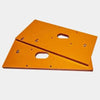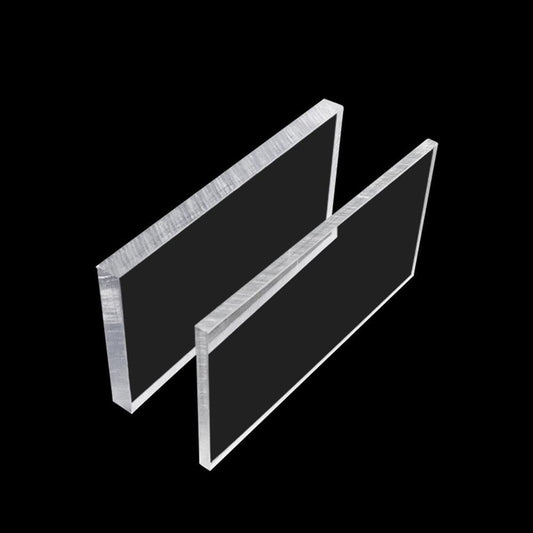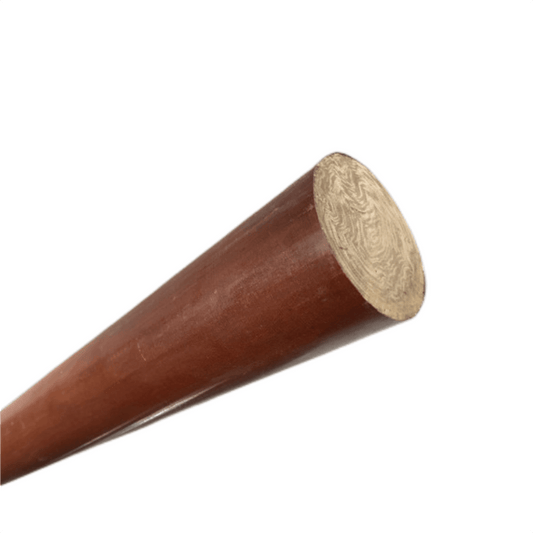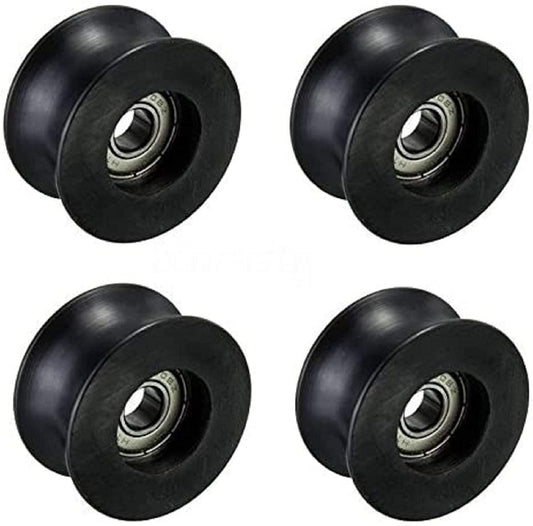Discover the ultimate guide to Bakelite sheets in my blog post, "Bakelite Sheets for Sale: Finding the Best Suppliers for Your Bulk Orders." Dive into the fascinating history of Bakelite, the first synthetic plastic, and learn why it remains a vital material in various industries. Explore the key properties of Bakelite sheets that make them ideal for electrical insulation, heat resistance, and mechanical strength.

Understand the diverse applications of Bakelite across electrical equipment, automotive parts, aerospace components, and more. Get tips on selecting the right Bakelite sheet thickness for your specific needs and compare Bakelite with other insulating materials to see why it stands out.
Find practical advice on sourcing high-quality Bakelite sheets, including how to choose reliable suppliers like BeePlastic.com. Lastly, discover the customization options available to ensure your Bakelite sheets meet the precise requirements of your industrial applications.
Whether you're in the market for Bakelite sheets for bulk orders or just curious about this timeless material, this blog post provides comprehensive insights to help you make informed decisions.
Understanding Bakelite and Its Historical Significance
The Origins of Bakelite
Bakelite was invented in 1907 by Belgian-American chemist Leo Baekeland, marking a significant milestone in the history of materials science. Baekeland sought to create a synthetic substitute for shellac, a natural resin derived from lac beetles, widely used as an electrical insulator. By experimenting with phenol and formaldehyde, he discovered a new material that could be molded into various shapes under heat and pressure, then retained its form upon cooling. This invention, named Bakelite, became the world's first synthetic plastic, revolutionizing the plastic industry.
Revolutionizing the Plastic Industry
The introduction of Bakelite transformed manufacturing processes across multiple industries. Unlike natural materials, Bakelite was heat-resistant, electrically non-conductive, and chemically stable. These properties made it an ideal material for electrical insulators, radio and telephone casings, and automotive parts. Bakelite's ability to be mass-produced and molded into precise shapes reduced production costs and increased efficiency, setting the stage for the modern plastics industry.
Historical Uses of Bakelite
Early Electrical Insulation
In the early 20th century, Bakelite was widely used as an electrical insulator. Its excellent insulating properties and resistance to heat made it the material of choice for electrical switchboards, light sockets, and other components. This use was crucial in the development of safe and reliable electrical systems, contributing to the widespread adoption of electricity in homes and industries.

Automotive and Consumer Goods
Bakelite found extensive use in the automotive industry for parts such as distributor caps, ignition coils, and brake pads. Its durability and heat resistance ensured that these components could withstand the harsh conditions of automotive environments. Additionally, Bakelite's aesthetic appeal led to its use in consumer goods like kitchenware, radios, and telephones, becoming a symbol of innovation and modernity.
Why Bakelite Remains Relevant Today
Despite the advent of newer plastics, Bakelite retains its relevance due to its unique properties. It is still used in applications requiring high heat resistance and electrical insulation, such as in aerospace and industrial machinery. The vintage appeal of Bakelite also keeps it popular among collectors and in the production of retro-style consumer goods. Its role in the early development of plastics underscores its enduring significance in materials science.
The Timeless Appeal of Bakelite
Bakelite continues to be valued not only for its functional properties but also for its historical and aesthetic significance. Collectors prize vintage Bakelite items for their durability and nostalgic charm. Moreover, modern designers incorporate Bakelite into their work, blending its classic look with contemporary styles. This blend of history and functionality ensures that Bakelite remains a sought-after material in various industries.
The story of Bakelite is a testament to the power of innovation and the impact of synthetic materials on modern manufacturing. From its invention by Leo Baekeland to its wide range of applications, Bakelite has left an indelible mark on the plastic industry. Its unique properties and historical significance continue to make it a relevant and valued material today.
Key Properties of Bakelite Sheets
Excellent Electrical Insulation
One of the most notable properties of Bakelite sheets is their excellent electrical insulation. This material is highly non-conductive, making it an ideal choice for a variety of electrical applications. Bakelite effectively prevents electrical currents from passing through, ensuring the safety and reliability of electrical components. This property is especially crucial for products like switchboards, circuit boards, and transformers, where electrical insulation is paramount to prevent short circuits and electrical failures.
Superior Heat Resistance
Bakelite sheets exhibit superior heat resistance, a critical property for many industrial applications. Unlike many other plastics that can melt or degrade under high temperatures, Bakelite can withstand temperatures up to 300 degrees Celsius without losing its structural integrity. This makes it an excellent material for applications that involve high heat, such as automotive parts like brake pads and clutch plates, as well as electrical insulators that need to maintain performance in high-temperature environments.

Chemical Resistance
The chemical resistance of Bakelite sheets is another significant advantage. Bakelite is resistant to many chemicals, oils, and solvents, which makes it suitable for use in harsh industrial environments where exposure to such substances is common. This property ensures that Bakelite components maintain their performance and longevity even when exposed to corrosive chemicals, making them ideal for chemical processing equipment and laboratory countertops.
High Mechanical Strength
Bakelite is renowned for its high mechanical strength and durability. It is a hard, rigid material that can withstand significant mechanical stress without deforming or breaking. This makes Bakelite sheets suitable for use in applications that require robust, wear-resistant components. For instance, Bakelite is often used in industrial machinery parts, gears, and bearings, where mechanical strength is essential to ensure long-lasting performance under heavy loads.
Dimensional Stability
Another critical property of Bakelite sheets is their dimensional stability. Bakelite does not expand or contract significantly with changes in temperature or humidity, which ensures that components made from this material retain their precise dimensions over time. This stability is vital for applications where dimensional accuracy is crucial, such as in electronic components and precision machined parts.
Applications in Various Industries
The combination of these properties makes Bakelite sheets ideal for a wide range of industrial applications. Their electrical insulation and heat resistance make them perfect for electrical and electronic components. The chemical resistance and mechanical strength ensure their suitability for automotive and industrial machinery parts. Furthermore, the dimensional stability of Bakelite makes it an excellent choice for precision components in the aerospace and defense industries.
By understanding these key properties, one can appreciate why Bakelite continues to be a preferred material in various industrial applications. Whether it's for electrical insulation, heat resistance, or mechanical strength, Bakelite sheets offer unmatched performance and reliability.
Diverse Applications of Bakelite Sheets
Electrical Equipment
Bakelite sheets are highly valued in the electrical industry for their excellent electrical insulation properties. They are commonly used in manufacturing switchboards, circuit breakers, and transformers. Bakelite can withstand high voltages without conducting electricity, making it an ideal material for these components. Moreover, its ability to resist heat and mechanical stress ensures the longevity and reliability of electrical systems. The material's use in printed circuit boards (PCBs) also highlights its precision and stability, crucial for modern electronics.
Automotive Parts
The automotive industry leverages Bakelite's heat resistance and mechanical strength in various applications. Bakelite sheets are used to produce brake pads, clutch plates, and distributor caps. These parts must endure high temperatures and mechanical wear, and Bakelite's properties make it an ideal choice. The material's durability ensures that automotive components perform reliably under extreme conditions, enhancing vehicle safety and efficiency.
Aerospace Components
In the aerospace industry, Bakelite sheets are used for their lightweight and high-strength properties. Aerospace components require materials that can withstand high temperatures and mechanical stresses while contributing minimal weight to the overall structure. Bakelite is used in aircraft interior panels, insulating components, and structural parts. Its ability to resist chemical corrosion and maintain dimensional stability under varying environmental conditions makes it indispensable in aerospace applications.
Laboratory Equipment
Bakelite is also prominent in the laboratory setting due to its chemical resistance and ease of cleaning. Bakelite sheets are used to construct laboratory countertops, fume hoods, and equipment housings. These surfaces must resist chemicals and solvents commonly used in laboratories. Bakelite's durability and resistance to contamination make it an ideal material for maintaining a clean and safe laboratory environment.
Industrial Machinery
The industrial machinery sector benefits significantly from the use of Bakelite sheets. The material's mechanical strength and wear resistance are crucial for producing gears, bearings, and machine housings. Bakelite can withstand the high pressures and mechanical stresses typical in industrial operations, ensuring that machinery components remain reliable and efficient over long periods. Additionally, its ability to maintain dimensional stability under thermal and mechanical loads is vital for precision engineering.
Summary
Bakelite's diverse applications across multiple industries underscore its versatility and reliability. From electrical equipment and automotive parts to aerospace components, laboratory equipment, and industrial machinery, Bakelite sheets provide unmatched performance and durability. Understanding these applications helps appreciate why Bakelite remains a preferred material in many high-demand sectors.











